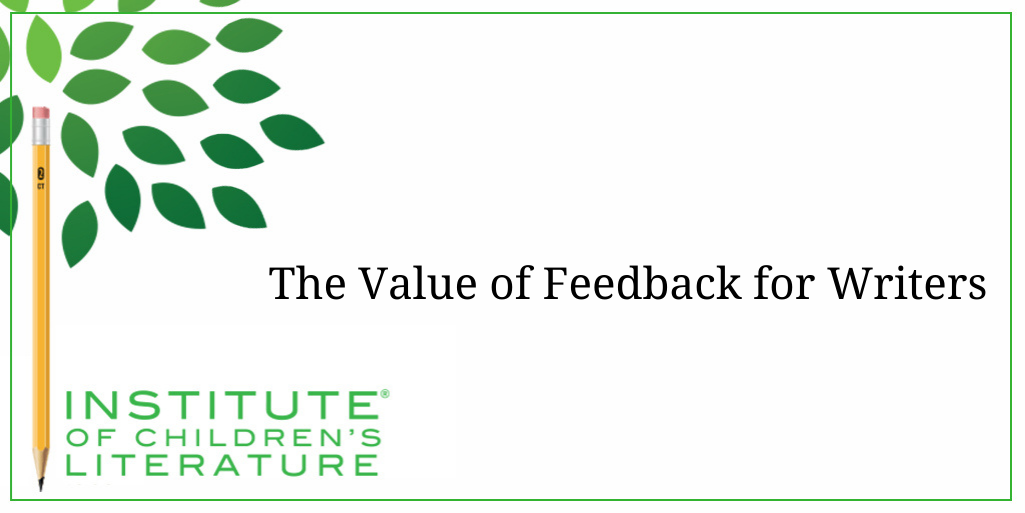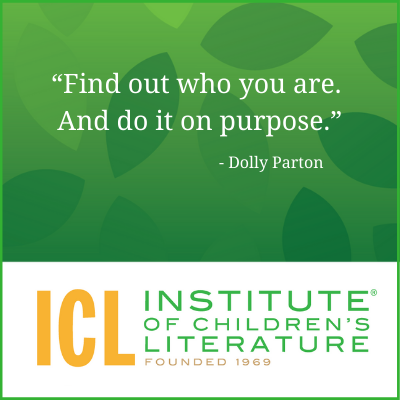
5 Ways Writers Can Prep for 2025 Goal Setting
Before we roll on to the new writing year, let’s harness our optimism for the blank slate before us and prepare for our 2025 Goal Setting just for writers.
Beginning Tuesday, July 22, 2025 at 10 PM CT through Wednesday, July 23, 2025 at 4 AM CT, we will be performing scheduled maintenance to update our website.

We teach our students how to write and get published!
View our Course Catalog >
One of the most valuable things a writer can receive is feedback. Without feedback, we are limited to only our own understanding of how sentences, paragraphs, scenes, and stories can be interpreted. Since we know what we meant to say, we tend to read over our work with too much pre-knowledge and not notice where we might be confusing a reader. We know where we are going. We know what is happening at every moment even before we put the words down. This means we will read over a lot of problem areas without spotting them.
Feedback for writers is hugely helpful for overcoming that limitation. Feedback helps us learn how well we are communicating the things we meant to communicate. It lets us know how a character is coming across. It lets us know how clear our communication is during the scene and what questions are being generated in the mind of the reader. Because of this, good feedback (sometimes called critique) goes far beyond catching typos or grammar errors. Good feedback catches errors in communication.
One area of feedback that nearly all published writers experience is feedback from acquiring editors. Many also experience feedback from agents. These are excellent sources of feedback because they come from professionals in the field with experience judging exactly what readers need to maximize understanding and enjoyment.

In fact, writers often don’t even get letters of rejection at all and submissions simply get no reply if they don’t suit the needs of the publisher or don’t mesh well with the focus of the agent. As a result of these changes, most writers not only benefit from feedback from other sources, but actively need such feedback. If you want to improve your writing and your odds of publication, feedback is essential.
Many writers use what they call “beta readers” to read their work before they consider submitting it. A beta reader is usually a nonprofessional friend or family member who is willing to read a work in progress and provide feedback. Most beta readers aren’t writers at all. If committed to being honest even if it hurts a little, a beta reader will be incredibly helpful for spotting places where the writing is not communicating clearly.
Some beta readers even offer suggestions. This may be helpful in giving you a new way to look at the problem area. However, beta reader suggestions must be carefully considered. Beta readers aren’t publishing professionals. They may be offering suggestions based on a poor understanding of publishing today. I’ve heard of beta readers who tell authors they shouldn’t have characters in physical danger in young adult books. I’ve heard of beta readers who tell authors that middle grade should not touch on edgy subjects. Neither suggestion reflects an understanding of publishing today.
Instead of immediately accepting every suggestion offered by a beta reader, see them instead as compasses that point at potentially problematic areas. Always consider the problem they mention, and look closely at that section of your writing to see if you can find your own solution. A beta reader who consistently seems to push you in directions that don’t work well for your writing is probably not a good match. So if you choose to go the route of having beta readers, choose carefully, and evaluate everything without automatically accepting beta feedback. Another drawback to beta readers is similar to the one with professional editors and agents, the feedback is project specific and doesn’t usually help you grow beyond the project much.
Peer feedback comes from other writers. This can come in the form of a critique partner or a critique group. Unlike the feedback from a beta reader, peer feedback is often clearer and points out specific errors. But that doesn’t necessarily mean everything said by a peer is correct. Some writers will give critique based more on the way they write than on whether the piece works in terms of voice and clarity. Again, this is something you will need to consider carefully. Is your critique partner or group pointing you at problems or trying to change your overall vision for the piece? Do they consistently want to change your voice? Not every critique group or critique partner is a good match, so judge carefully.
If you do shy away from critique groups, be sure the reason is because the match doesn’t work, not because you’re resisting feedback that stings. A good critique is more than ego boosting. It will correct and clarify, gently but firmly. Good peer review sometimes points out patterns of problems in your work and can help you look beyond the specific project. The things you learn may be transferable to future writing.
Acquiring editors and agents aren’t the only way to receive professional level feedback. Professional feedback for writers can be available to writers who go to conferences or workshops (though the feedback often requires an additional fee), or to writers who take classes either online or in person (often not at an additional fee). Finally, professional feedback can be available by hiring a paid editor or paid critique. Paid critiques can be varying levels of expensive. With critiques, you want to be certain to get what you pay for. One way to be certain is to check into the background and credentials of the critiques. Are they people with extensive experience in the business? Do you have good reason to trust that they know what they are saying?
The best paid critiques offer extensive, specific feedback that not only help you improve the specific project you’re having the editor look at, but also helps you understand what is causing the problem, so that you can carry that knowledge to other works in the future. The best way to get the most for your money in a critique is to dig in and be sure you understand it so that you can apply that understanding to other work. Obviously not everyone can afford a paid critique, but if you have a piece that you love and believe in, but that hasn’t gotten you across the finish line with a publisher or agent, a paid critique can be exactly the tool to find the problem and correct it.
Paid editing and critique is also extremely helpful for writers who intend to try out self-publishing. Success in self-publishing as in most any publishing is directly related to the quality of the work. Readers will not return to buy your next book if your first book was confusing and full of errors. That means having a good editor, even though costly, can pay off not only for this book, but for the success of future books.
Whatever form of feedback you find fits you best, you need to become comfortable with it. It will open your eyes to problems so you can spot them and correct them better in the future. It will help you learn to read your own work like a reader. And it will help you cast off any remnants of thin skin before you are published and really experience some harsh feedback, the kind reviewers can dish out. So find your feedback sweet spot and begin to reap the rewards. You’ll be glad you did.
With over 100 books in publication, Jan Fields writes both chapter books for children and mystery novels for adults. She’s also known for a variety of experiences teaching writing, from one session SCBWI events to lengthier Highlights Foundation workshops to these blog posts for the Institute of Children’s Literature. As a former ICL instructor, Jan enjoys equipping writers for success in whatever way she can.

Before we roll on to the new writing year, let’s harness our optimism for the blank slate before us and prepare for our 2025 Goal Setting just for writers.

Writers can be thin-skinned when it comes to getting feedback on their work. Let’s look at 4 ways to positively deal with constructive criticism!

Rejection is part of the territory when it comes to being a writer. Today we offer reflection for writers to help redirect your efforts after a rejection.
1000 N. West Street #1200, Wilmington, DE 19801
© 2024 Direct Learning Systems, Inc. All rights reserved.
1000 N. West Street #1200, Wilmington, DE 19801
© 2024 Direct Learning Systems, Inc. All rights reserved.
1000 N. West Street #1200, Wilmington, DE 19801
© 2024 Direct Learning Systems, Inc. All rights reserved.
1000 N. West Street #1200, Wilmington, DE 19801
© 2025 Direct Learning Systems, Inc. All rights reserved.
1000 N. West Street #1200, Wilmington, DE 19801
©2025 Direct Learning Systems, Inc. All rights reserved. Privacy Policy.
7 Comments
Dear Jan, I’m glad to see that you write for both children and adults. I had registered as wanting to write for children, but as time goes on I realize I would like to address adults too. So this time when I renewed my course I registered as wanting to write for adults. Now I’m not sure if I answered correctly. Will that cause confusion in my course work? Should I try to change my answer? Or should I quit fretting and just let the chips fall? Respectfully, Wilma Christner
Hi Wilma! Contact Student Services at info@instituteforwriters.com or 1-800-243-9645 and they’ll be glad to help you with this.